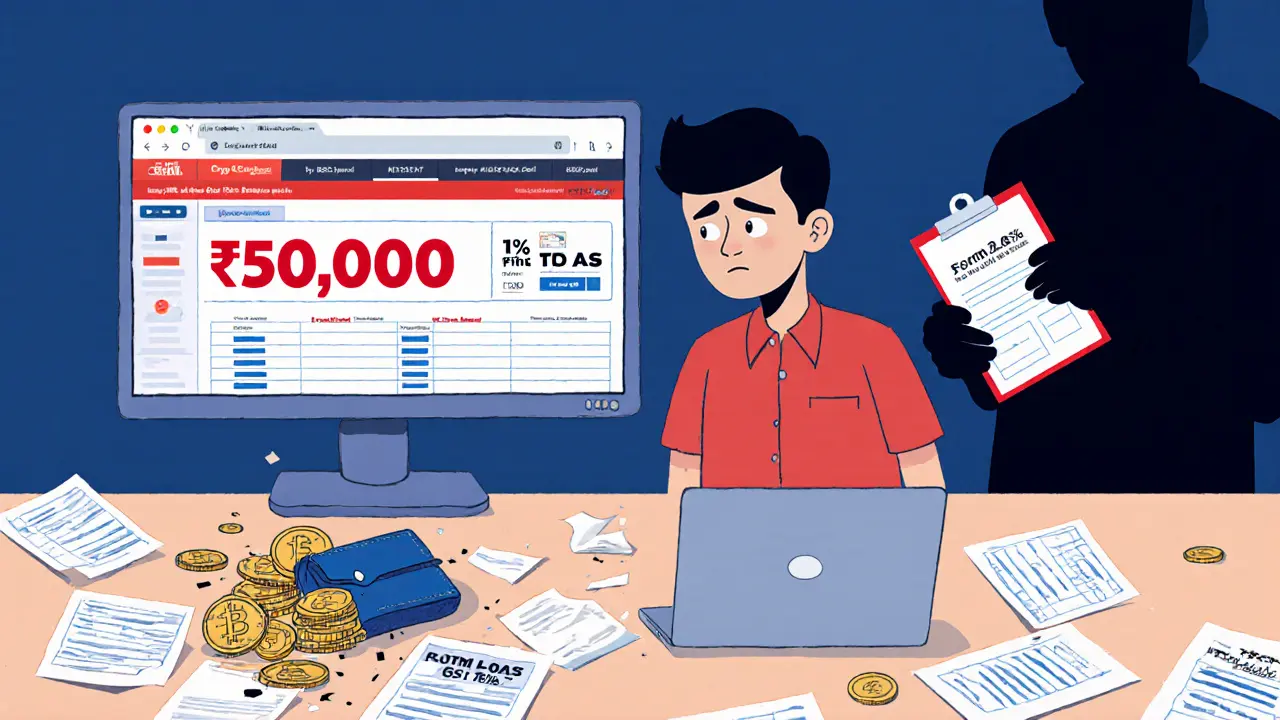TDS on Cryptocurrency: What It Is and How It Affects Your Trades
When you trade or sell cryptocurrency, TDS on cryptocurrency, a tax deducted at source applied to digital asset transactions in certain jurisdictions. Also known as Tax Deducted at Source, it’s not a separate tax—it’s an advance payment collected by the exchange or platform before you even see your profits. This isn’t just a rule in India—it’s spreading. Countries like Nigeria, Vietnam, and others are starting to treat crypto like cash or stocks when it comes to withholding taxes. If you’re trading regularly, TDS hits your wallet before you even have a chance to decide what to do with the money.
TDS on cryptocurrency doesn’t care if you made a profit. Even if you traded USDT for SOL and lost 20%, the platform still takes a cut—usually 0.1% to 1%—right at the moment of the trade. That’s why some traders in places like Tunisia or Iran avoid centralized exchanges entirely. They use P2P platforms or no-KYC DEXs to sidestep TDS altogether. But that comes with its own risks: no chargebacks, no customer support, and no legal recourse if something goes wrong. Meanwhile, exchanges like Tokenlon or Merchant Moe don’t collect TDS because they’re decentralized and operate across borders. But if you’re using a platform that’s registered in a country with TDS rules, you’re already in the system.
It’s not just about trading. If you’re earning crypto as income—through staking, airdrops, or mining—some governments now treat that like a salary. TDS might be withheld before the tokens even hit your wallet. In Nigeria, VASP licensing forces platforms to track and report every transaction. In Vietnam, the new 0.1% tax applies to every swap, whether you’re buying Bitcoin or swapping meme coins. And if you’re a U.S. expat, forget about TDS—your exit tax could hit you harder when you renounce citizenship, because the IRS treats crypto like property, not currency. TDS is just one layer in a growing web of crypto compliance rules that vary wildly by country.
What you’ll find below are real examples of how TDS and similar rules play out in practice. From scams pretending to be tax-compliant exchanges to platforms that quietly dodge withholding taxes, these posts show you where the money’s being taken, who’s collecting it, and how to protect yourself. No fluff. Just what’s real, what’s risky, and what you need to do next.

1% TDS on Crypto Transactions in India Explained: What You Need to Know in 2025
India's 1% TDS on crypto transactions automatically deducts tax on every trade, sale, or spend. Learn how it works, who it affects, and what you need to do in 2025 to stay compliant.
© 2026. All rights reserved.